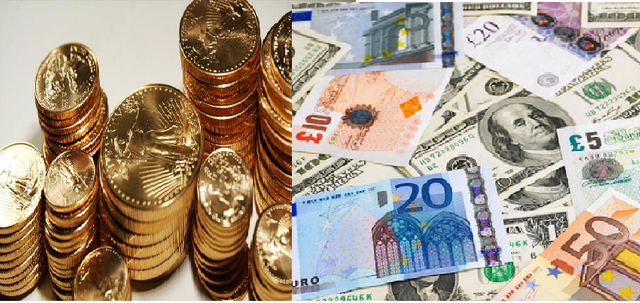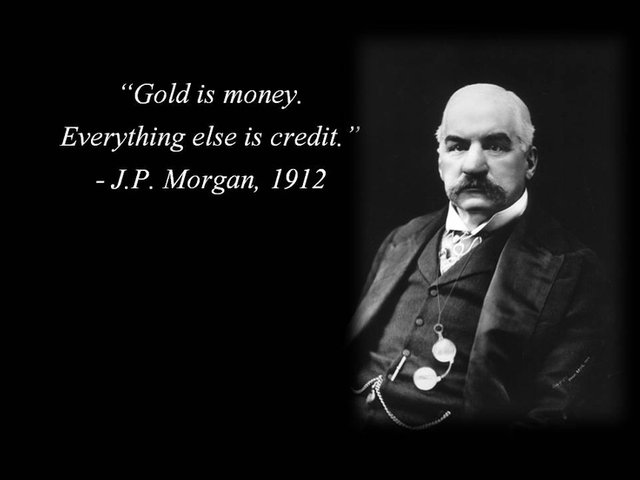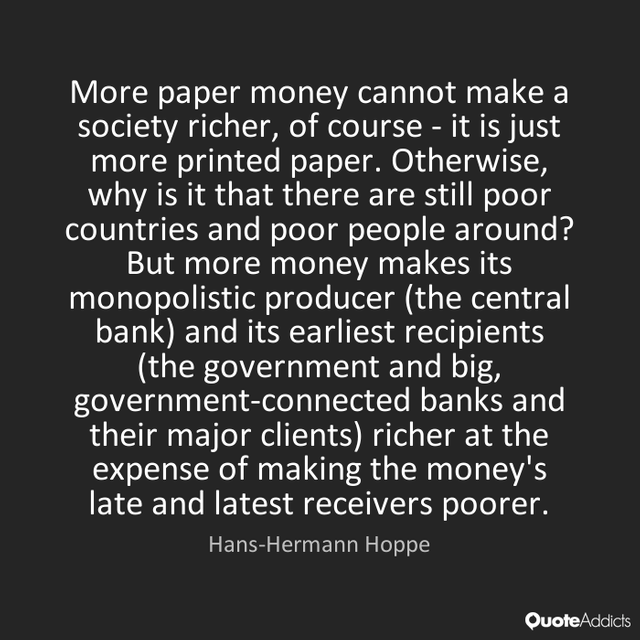Money Versus Currency
This post is very much influenced by Mike Maloney and in particular, his first video in the "Hidden Secrets of Money" series.

I'm guilty of using these terms interchangeably, but there is a very important distinction to be made and this is what I'll be talking about here.
Money arose mainly as the unit of exchange for any economy that has grown above the level of barter and direct exchange. If a blueberry farmer wants cattle, he would have to directly exchange blueberries for the cattle. Not only is this transaction inconvenient and difficult to measure, but the blueberry farmer must hope that the cattle farmer actually wants/needs blueberries in the first place. This problem is known is the "coincidence of wants." Money comes in to solve this problem, as it provides a means of exchange which is greatly simplified.
Tangible commodities have always been the preferred type of money when the market is allowed to naturally choose. Over time, the precious metals have been chosen as the best commodity for money. Murray Rothbard explains this well in one of his books.
"Historically, many different goods have been used as media: tobacco in colonial Virginia, sugar in the West Indies, salt in Abyssinia, cattle in ancient Greece, nails in Scotland, copper in ancient Egypt, and grain, beads, tea, cowrie shells, and fishhooks. Through the centuries, two commodities, gold and silver, have emerged as money in the free competition of the market, and have displaced the other commodities. Both are uniquely marketable, are in great demand as ornaments, and excel in the other necessary qualities. In recent times, silver, being relatively more abundant than gold, has been found more useful for smaller exchanges, while gold is more useful for larger transactions. At any rate, the important thing is that whatever the reason, the free market has found gold and silver to be the most efficient moneys. "

Now let's talk about currency, AKA fiat currency. Fiat currency never arises naturally and spontaneously from the free market, instead it only comes about through government decree. Governments create currency units, and also create legal tender laws which commands it's citizens to only use the paper currency to their monetary transactions. There is no limit to the amount of fiat currency a government/central bank can create, which makes quite a distinction with money. There is only so much gold or silver in existence at any given time. Mining precious metals from the ground is very expensive and prolonged process. Doubling the amount of gold production is definitely not something that can be done on a whim, whereas fiat currency can be created instantly(mostly in digital form these days). In a world of scarce resources, governments and central banks attempt to skirt this universal fact by creating currency units in attempt to control the money supply, which is a severe intervention in the market. Inflation by definition is an expansion of monetary units, and severe inflation can only happen with fiat currency units which costs basically nothing to be created, unlike metals mined from the earth.

I will probably still use the term "money" most of the time when talking about financial topics, but it is important to realize the difference.

Sources-
Hello @thefinanceguy,
It gives us pleasure to inform you that this post have been upvoted by Project Better.
The Mission of Project Better is to reward posts have many votes from Minnows but earn pennies.
Your payout is $0.001 before we vote on your post.
Learn more about the Project Better here! ,
Want to donate your voting power to support Project Better and earn curation rewards? Click Here!
We hope to see you continuing to post some great stuff on Steemit!
Good luck!
~BETTER~
That's awesome! Thank you so much for helping @better